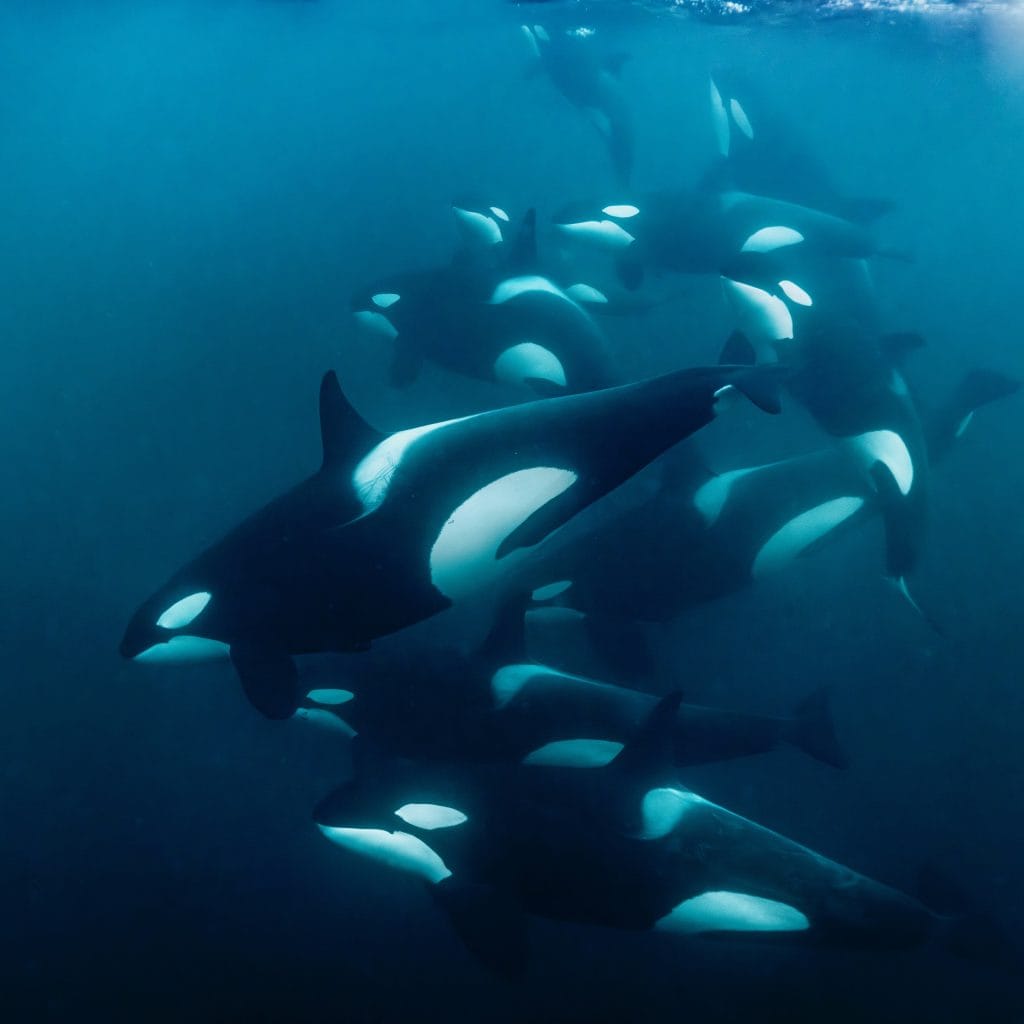In the vast oceans of our planet, the orca, or “killer whale”, rules as one of the most intelligent and socially complex species. Contrary to what their name suggests, orcas are not actually whales, but rather the largest member of the dolphin family. Orcas have captivated marine scientists for decades, not just for their hunting prowess but for their unparalleled teamwork, communication skills, and family bonds.
Orcas live and hunt in close-knit groups known as pods, each with a well-defined social structure. Like elephant herds, they are led by a matriarch – usually the oldest female – whose experience and knowledge of the oceans guide the entire pod. The matriarch’s wisdom, accumulated over decades, informs everything from seasonal migration routes to complex hunting techniques. What’s even more fascinating is the role each member plays within the pod. Orcas are known for cooperative hunting techniques where every individual has a specific role: some orcas drive prey toward a trap, while others learned to create “waves” to dislodge seals resting on ice floes. This synchronized hunting showcases not only their intelligence but their profound understanding of collective action.
Despite being apex predators, orcas are known to share their catch among all members of the pod, especially the young and old, and each success is a success for the entire pod. This level of cooperation and social intelligence is rare in the animal kingdom.
Lessons for Human Leadership
The orca’s success in the ocean comes from an unwavering dedication to the pod and a recognition of each member’s role in the group’s survival. Orcas remind us that leadership isn’t about dominance but about cooperation and strategic thinking. Like the orca matriarch, a great leader recognizes the importance of shared wisdom and the value each team member brings to the table. Leaders can also adopt the orcas’ approach to communication – clear, precise, and in sync with the team: just as orcas use complex vocalizations and physical cues to coordinate their movements, leaders benefit from open and constructive communication that aligns the team toward a common goal.
Conservation Insights
Orcas, with their specialized behaviors and tightly knit pods, are among the species most impacted by human activities: they face threats from habitat destruction, pollution, and the effects of climate change on their prey. Conservation efforts focus on protecting their habitats and ensuring the survival of these magnificent animals. By preserving their ecosystems, we safeguard one of the ocean’s most complex and fascinating societies.
About the Picture
A pod of orcas playing in the dark blue ocean. Photo taken by Kertu Saarits near Tromsoe / Norway in 2023, all right reserved.





